(待分)新概念二79课知识点整理
- 格式:doc
- 大小:65.50 KB
- 文档页数:23
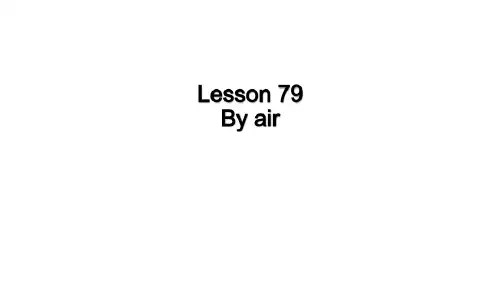
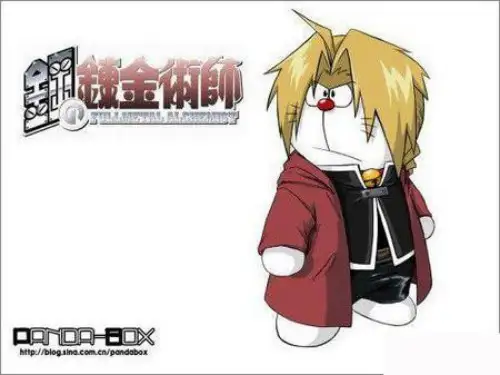
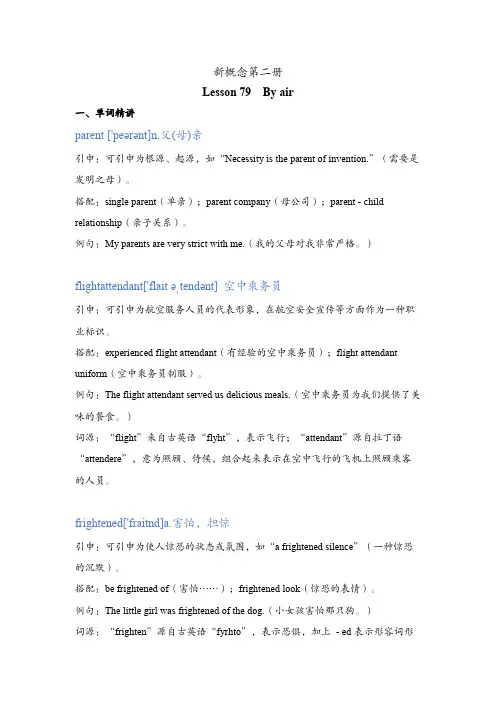
新概念第二册Lesson 79 By air一、单词精讲parent ['peərənt]n.父(母)亲引申:可引申为根源、起源,如“Necessity is the parent of invention.”(需要是发明之母)。
搭配:single parent(单亲);parent company(母公司);parent - child relationship(亲子关系)。
例句:My parents are very strict with me.(我的父母对我非常严格。
)flightattendant['flait əˌtendənt] 空中乘务员引申:可引申为航空服务人员的代表形象,在航空安全宣传等方面作为一种职业标识。
搭配:experienced flight attendant(有经验的空中乘务员);flight attendant uniform(空中乘务员制服)。
例句:The flight attendant served us delicious meals.(空中乘务员为我们提供了美味的餐食。
)词源:“flight”来自古英语“flyht”,表示飞行;“attendant”源自拉丁语“attendere”,意为照顾、侍候,组合起来表示在空中飞行的飞机上照顾乘客的人员。
frightened['fraitnd]a.害怕,担惊引申:可引申为使人惊恐的状态或氛围,如“a frightened silence”(一种惊恐的沉默)。
搭配:be frightened of(害怕……);frightened look(惊恐的表情)。
例句:The little girl was frightened of the dog.(小女孩害怕那只狗。
)词源:“frighten”源自古英语“fyrhto”,表示恐惧,加上- ed表示形容词形式。
curious['kjuəriəs] a.急于了解,好奇的引申:可引申为奇特的、古怪的,如“a curious object”(一个奇特的物体)。
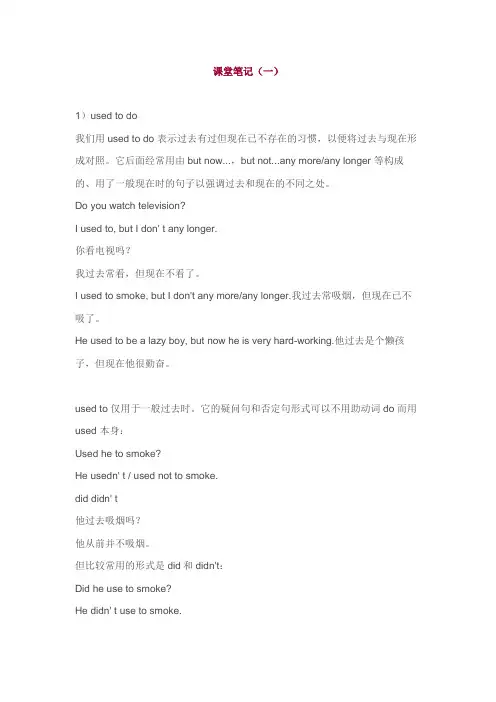
课堂笔记(一)1)used to do我们用used to do 表示过去有过但现在已不存在的习惯,以便将过去与现在形成对照。
它后面经常用由but now...,but not...any more/any longer 等构成的、用了一般现在时的句子以强调过去和现在的不同之处。
Do you watch television?I used to, but I don' t any longer.你看电视吗?我过去常看,但现在不看了。
I used to smoke, but I don't any more/any longer.我过去常吸烟,但现在已不吸了。
He used to be a lazy boy, but now he is very hard-working.他过去是个懒孩子,但现在他很勤奋。
used to 仅用于一般过去时。
它的疑问句和否定句形式可以不用助动词do 而用used 本身:Used he to smoke?He usedn' t / used not to smoke.did didn' t他过去吸烟吗?他从前并不吸烟。
但比较常用的形式是did和didn't:Did he use to smoke?He didn' t use to smoke.他过去吸烟吗?他从前不吸烟。
在针对used to提问时,一般也用didI used to be a good swimmer.Did you really? I didn' t even know you could swim.Did you use to smoke?Yes, I did / used to.我过去是个游泳好手。
真的吗?我以前甚至不知道你会游泳。
你从前吸烟吗?是的,我吸。
would 是另一个用于描述过去经常性行为的词,它与used to有时可以互换,有时则不可以,而且would 需要指出具体时间,used to 则不需要。
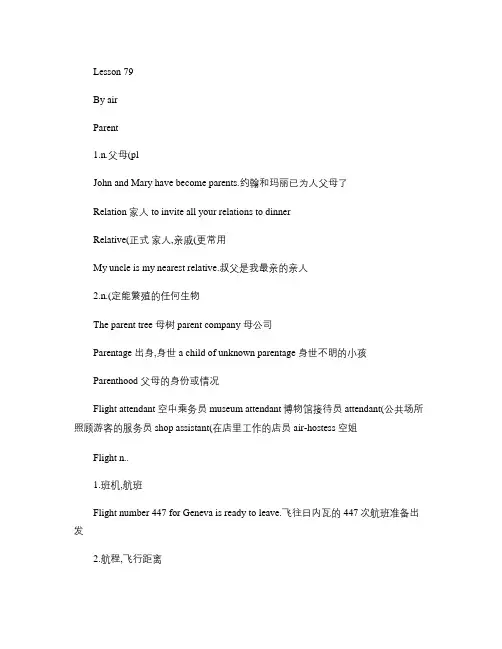
Lesson 79By airParent1.n.父母(plJohn and Mary have become parents.约翰和玛丽已为人父母了Relation 家人to invite all your relations to dinnerRelative(正式家人,亲戚(更常用My uncle is my nearest relative.叔父是我最亲的亲人2.n.(定能繁殖的任何生物The parent tree 母树parent company 母公司Parentage 出身,身世 a child of unknown parentage 身世不明的小孩Parenthood 父母的身份或情况Flight attendant 空中乘务员museum attendant博物馆接待员attendant(公共场所照顾游客的服务员shop assistant(在店里工作的店员air-hostess 空姐Flight n..1.班机,航班Flight number 447 for Geneva is ready to leave.飞往日内瓦的447次航班准备出发2.航程,飞行距离A straight flight towards home 直航回家3.航空旅程Did you have a good flight? 你搭乘飞机一路愉快吗?Frightened adj.受惊的,吃惊的The frightened horse ran away from the fire.受惊的马从大火中逃跑了He was frightened at the thought of his coming examination.一想到即将到来的考试他就害怕She was frightened to look down from the top of the tall building.他害怕从楼顶向下看The little girl was frightened that her mother wouldn’t come back.小女孩害怕妈妈不回来了Afraid adj.害怕的be afraid of 害怕某物be afraid of dogs be afraid that 害怕某事Be afraid to do 害怕做某事Frightening adj.令人受惊的 a frightening dream 吓人的梦Frightful adj. 可怕的,惊人的 a frightful scene 可怕的景象Frighten1.v.使吃惊,惊吓The little girl was frightened by the big dog.这个小女孩被大狗吓到了2.v.吓走He frightened off his attacker by calling for the police.他叫警察吓走了袭击者Fright n. 害怕get a fright 吓了一跳Curious adj.1.急于了解的,好奇的A good student should always be curious to learn.好学生应有求知欲He was so curious to know what was in the letter that he opened it, even though it was addressed to his father.他如此好奇想知道信里内容,于是他打开了信,尽管信是写给父亲的2.好管闲事的My neighbors are very curious. 我的邻居们非常好管闲事Curiosity n. 好奇,好奇心out of curiosity 出于好奇The boy burned with a curiosity to know what was in the letter addressed to his mother.这个男孩极想知道写给妈妈的信里的内容Bomb 形近词comb梳子1.炸弹plant a bomb in the post office 在邮局安放一枚炸弹2.原子弹Has that country got the bomb?那个国家有原子弹么?Go like a bomb (指交通工具行进快速,疾驶My new car goes like a bomb.Spend a bomb/cost a bomb 花了许多钱Bomber 轰炸机fighter战斗机Plant1.v. 安放He planted himself in a chair by the fire.他稳坐在炉边的椅子上He planted a knife in her back.他在她背上插了一刀2.v.种植April is the time to plant.四月是种植的时间3.v.播种,培植The hillside was planted with trees.上坡上被种满了树4.n.植物All plants need water and light.所有的树都需要水和阳光5.n.工厂They’ve just built a new chemical plant.他们刚刚兴建了一家化学厂Key structures过去时/过去进行时Used to do /was (were+doingTextA flight attendant would take charge of me and I never had an unpleasant experience. Take charge of 负责照料(某人/某物Can you take charge of this class please, miss jones?In someone’s charge/under someone’s charge受管理,由(某人负责This hospital is in her charge until the director comes back这家医院由他负责直到主管回来之前In charge of 负责I’ll be in charge of the whole factory next week when the director is away下周厂子不在的时候我负责Bring a charge against 控告(某人The police brought a charge of murder against me.警方控告我谋杀Unpleasant adj.不愉快的,讨厌的Unpleasant smells恶心的气味unpleasant weather 讨厌的天气A few unpleasant words 一些难听的话an unpleasant experience不愉快的经历Unpleasantness n. 不愉快Don’t let the recent unpleasantness end our friendship.不要让眼下这些不愉快终止我们的友谊Un+adj.构成相反的含义adj.Unpractised 笨手笨脚的unprincipled无原则的,无廉耻的unprofessional非本行的Unmannerly粗鲁的unmarried未婚的unknown不知道的,不知名的Unfortunate 不幸的unforgettable难以忘怀的I am used to traveling by air and only on one occasion have I ever felt frightened.Be used to 习惯于(to为介词Be used to doing /be used to sthI am used to traveling by air.我习惯于坐飞机旅行I am not used to drinking.我不习惯喝酒A man used to country life习惯于乡村生活的男子On one accasion有一次Only引导状语,提前放在句首,要求倒装,助动词have提前Only(seldom,hardly+状语放在句首时,用倒装Only in this way can you hope to improve the situation there.只有用这种方式你才有希望改善那的状况(部分倒装Hardly had he finished when someone rose to refute his views.他刚一讲完就有人站起来驳斥他的观点Scarcely had she fallen asleep when a knock at the door awakened her.她刚一睡着就被敲门声吵醒了Not until quite recently did I have any idea what a guided missile was like.知道最近我才清楚导弹是什么样的以never,little,often等词引导的句子,也常用倒装语序Never before has our country been as united as it is today.今天我们的国家空前团结Many a time has he given us a good advice.他有很多次给我们好的建议Little did we suspect that the district was so rich in mineral resources.我们一点也没想到这个地区的矿产资源如此丰富Often did we warn them not to do so.我们经常警告他不要这样做After taking off, we were flying low over the city and slowly gaining height,when(at that time the plane suddenly turned round(turn around掉头 and flew back to the airport.Fly low over在…上方低低的飞行fly back to 飞回Fly1.v.飞,飞行How did you get here? I flew. (I came by airportA bee flew in through the open window.一只蜜蜂从开着的窗子飞了进来2.v.开飞机He was the first man ever to fly that type of aircraft.他是第一个开那种类型飞机的人3.v.搭乘飞机I always fly British Airways.我经常搭乘英航的飞机习语:I must fly/We must fly 我必须快点了(口急忙离去Fly into a temper勃然大怒The bird has flown犯人逃跑了Make the dust fly/make the fur fly/make the sparks fly引起争吵Slowly/graduallyGain height爬高gain speed加速gain experience获得经验Turn away拒伸援手Turn back 1.往回走2.把(某页的角折起来Turn the page back and it will mark your place把某页折个角,做个记号Turn down 1.减弱,降低Turn that radio down at once.2.拒绝She turned him down.Turn in 1.归还You must turn in your uniform when you leave the army.当你离开部队的时候你要归还制服2.(美交,缴This is a poor piece of work you’ve turned in.你交的作品很糟糕While we were waiting to land, a flight attendant told us to keep calm and to get off the plane quietly as soon as it had touched down.Land v.着陆This plane can land anywhere.这架飞机可以着陆在任何地方Keep calm 保持镇定keep+adj. keep warm 保暖keep silent 保持沉默Tell sb. to do …. Tell us to keep calm告诉我们保持镇定Tell us to get off the plane quietly告诉我们安静的下飞机Touch down/land飞机着陆Everybody on board was worried and we were curious to find out what had happened.On board在…(如飞机,船上上Go by the board(指计划,安排等完全失败sweep the board在选举中几获全胜Above board完全公开而手段正当Be curi ous to do…好奇做Later we learnt that there was a very important person on board.Learn/know very important person缩写VIP vip cardThe police had been told that a bomb had been planted on the plane. After we had landed, the plane was searched thoroughly(completely.Fortunately, nothing was found and five hours later we were able to take off again.Take off1.起飞2.脱下(put onHe took off his coat.3.模仿He is always taking his teacher off他总是模仿他的老师.以诙谐或嘲讽的方式模仿或假扮某人Take after 像Young Tom takes after his father/Young Tom resembles his father.在长相或性格方面像父亲或母亲Take up1.填满,占据(空间或时间The wardrobe takes up a lot of space/The wardrobe occupies a lot of space.这个衣柜很占空间2.开始从事某事He has taken up French/He has begun to learn French.他开始学习法语Take to 逐渐习惯于做某事When his wife died, he took to drinking他妻子死后,他染上酗酒的习惯Take to +n. /doingTake in 欺骗,蒙蔽或愚弄某人He was so persuasive that I was taken in/He was so persuasive that I was deceived.他真能说我被欺骗了Take down (write down写下,记下The reporter took down everything I said.Take over接受,接管be in charge ofThe business was doing very badly until Jones took over.琼斯接手之前公司业绩很差。

课堂笔记(一)1)used to do我们用used to do 表示过去有过但现在已不存在的习惯,以便将过去与现在形成对照。
它后面经常用由but now...,but not...any more/any longer 等构成的、用了一般现在时的句子以强调过去和现在的不同之处。
Do you watch television?I used to, but I don' t any longer.你看电视吗?我过去常看,但现在不看了。
I used to smoke, but I don't any more/any longer.我过去常吸烟,但现在已不吸了。
He used to be a lazy boy, but now he is very hard-working.他过去是个懒孩子,但现在他很勤奋。
used to 仅用于一般过去时。
它的疑问句和否定句形式可以不用助动词do 而用used 本身:Used he to smoke?He usedn' t / used not to smoke.did didn' t他过去吸烟吗?他从前并不吸烟。
但比较常用的形式是did和didn't:Did he use to smoke?He didn' t use to smoke.他过去吸烟吗?他从前不吸烟。
在针对used to提问时,一般也用didI used to be a good swimmer.Did you really? I didn' t even know you could swim.Did you use to smoke?Yes, I did / used to.我过去是个游泳好手。
真的吗?我以前甚至不知道你会游泳。
你从前吸烟吗?是的,我吸。
would 是另一个用于描述过去经常性行为的词,它与used to有时可以互换,有时则不可以,而且would 需要指出具体时间,used to 则不需要。
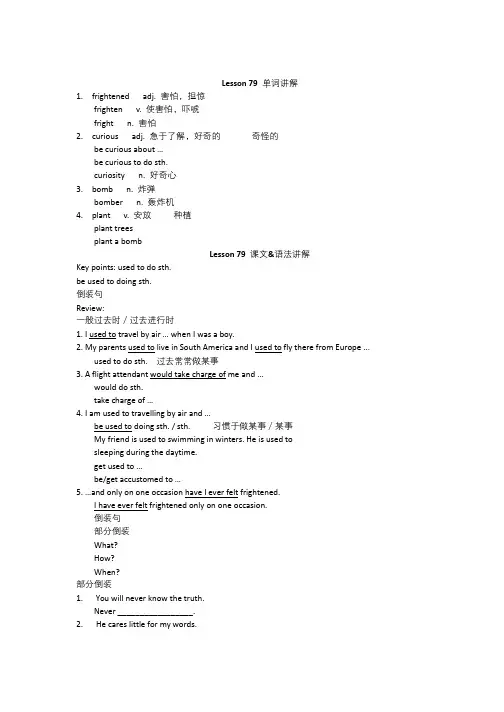
Lesson 79 单词讲解1. frightened adj. 害怕,担惊frighten v. 使害怕,吓唬fright n. 害怕2. curious adj. 急于了解,好奇的奇怪的be curious about …be curious to do sth.curiosity n. 好奇心3. bomb n. 炸弹bomber n. 轰炸机4. plant v. 安放种植plant treesplant a bombLesson 79 课文&语法讲解Key points: used to do sth.be used to doing sth.倒装句Review:一般过去时/过去进行时1. I used to travel by air … when I was a boy.2. My parents used to live in South America and I used to fly there from Europe ...used to do sth. 过去常常做某事3. A flight attendant would take charge of me and ...would do sth.take charge of …4. I am used to travelling by air and …be used to doing sth. / sth. 习惯于做某事/某事My friend is used to swimming in winters. He is used tosleeping during the daytime.get used to …be/get accustomed to …5. …and only on one occasion have I ever felt frightened.I have ever felt frightened only on one occasion.倒装句部分倒装What?How?When?部分倒装1. You will never know the truth.Never _________________.2. He cares little for my words.Little ________________.部分倒装3. I had no sooner got the invitation than I refused.No sooner ______________.4. He had hardly had time to settle down when he left the country.Hardly _________________.部分倒装5. We can learn English well only in this way.Only in this way __________.6. He achieved his goal only by working hard.Only by working hard ______.6. After taking off, we were flying low over the city and slowly gaining height, …we were flying low … and (we were) gaining height7. …when the plane suddenly turned round and flew back to the airport.the plane turned round and (the plane) flew back…8. While we were waiting to land, a flight attendant told us to keep calm and to get off the plane quietly ...a flight attendant told us to keep calmand (a flight attendant told us) to get off9. Everybody on board was worried and we were curious to find out what had happened.on boardbe curious to do sth.what had happened 宾语从句10. The police had been told that a bomb had been planted on the plane.that a bomb had been planted …宾语从句had been done过去完成时的被动语态Lesson 79 知识拓展People have always been ______ about exactly how life on earth began.A. curiousB. excitedC. anxiousD. careful( 天津5)Only after Mary read her composition the second time ______ the spelling mistake.A. did she noticeB. she noticedC. does she noticeD. she has noticed( 天津6)Only after Mary read her composition the second time ______ the spelling mistake.A. did she noticeB. she noticedC. does she noticeD. she has noticed( 天津6)Only when he reached the tea-house ______ it was the same place he’d been in last year.A. he realizedB. he did realizeC. realized heD. did he realize( 课标全国28)Only when he reached the tea-house ______ it was the same place he’d been in last year.A. he realizedB. he did realizeC. realized heD. did he realize( 课标全国28)Only with the greatest of luck ______ to escape from the rising flood waters.A. managed sheB. she managedC. did she manageD. she did manage( 上海29)Only with the greatest of luck ______ to escape from the rising flood waters.A. managed sheB. she managedC. did she manageD. she did manage( 上海29)Never before ______ seen anybody who can play tennis as well as Robert.A. had sheB. she hadC. has sheD. she has( 江西32)Never before ______ seen anybody who can play tennis as well as Robert.A. had sheB. she hadC. has sheD. she has( 江西32)Not until he retired from teaching three years ago ______ having a holiday abroad.A. he had consideredB. had he consideredC. he consideredD. did he consider( 辽宁32)Not until he retired from teaching three years ago ______ having a holiday abroad.A. he had consideredB. had he consideredC. he consideredD. did he consider( 辽宁32)。
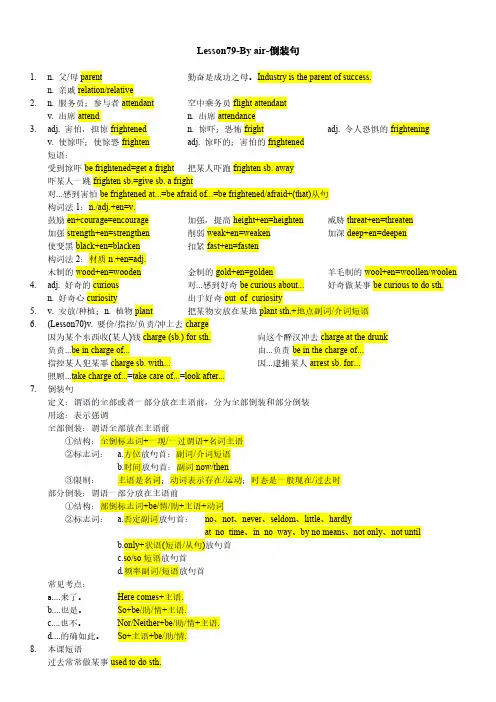
Lesson79-By air-倒装句1.n.父/母parent勤奋是成功之母。
Industry is the parent of success.n.亲戚relation/relative2.n.服务员;参与者attendant空中乘务员flight attendantv.出席attend n.出席attendance3.adj.害怕,担惊frightened n.惊吓;恐怖fright adj.令人恐惧的frighteningv.使惊吓;使惊恐frighten adj.惊吓的;害怕的frightened短语:受到惊吓be frightened=get a fright把某人吓跑frighten sb.away吓某人一跳frighten sb.=give sb.a fright对...感到害怕be frightened at...=be afraid of...=be frightened/afraid+(that)从句构词法1:n./adj.+en=v.鼓励en+courage=encourage加强,提高height+en=heighten威胁threat+en=threaten加强strength+en=strengthen削弱weak+en=weaken加深deep+en=deepen使变黑black+en=blacken扣紧fast+en=fasten构词法2:材质n.+en=adj.木制的wood+en=wooden金制的gold+en=golden羊毛制的wool+en=woollen/woolen 4.adj.好奇的curious对...感到好奇be curious about...好奇做某事be curious to do sth.n.好奇心curiosity出于好奇out of curiosity5.v.安放/种植;n.植物plant把某物安放在某地plant sth.+地点副词/介词短语6.(Lesson70)v.要价/指控/负责/冲上去charge因为某个东西收(某人)钱charge(sb.)for sth.向这个醉汉冲去charge at the drunk负责...be in charge of...由...负责be in the charge of...指控某人犯某罪charge sb.with...因...逮捕某人arrest sb.for...照顾...take charge of...=take care of...=look after...7.倒装句定义:谓语的全部或者一部分放在主语前,分为全部倒装和部分倒装用途:表示强调全部倒装:谓语全部放在主语前①结构:全倒标志词+一现/一过谓语+名词主语②标志词: a.方位放句首:副词/介词短语b.时间放句首:副词now/then③限制:主语是名词;动词表示存在/运动;时态是一般现在/过去时部分倒装:谓语一部分放在主语前①结构:部倒标志词+be/情/助+主语+动词②标志词: a.否定副词放句首:no、not、never、seldom、little、hardlyat no time、in no way、by no means、not only、not untilb.only+状语(短语/从句)放句首c.so/so短语放句首d.频率副词/短语放句首常见考点:a....来了。
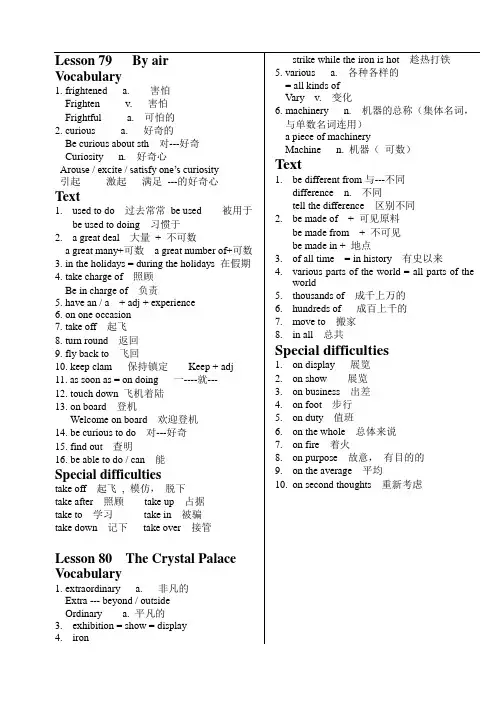
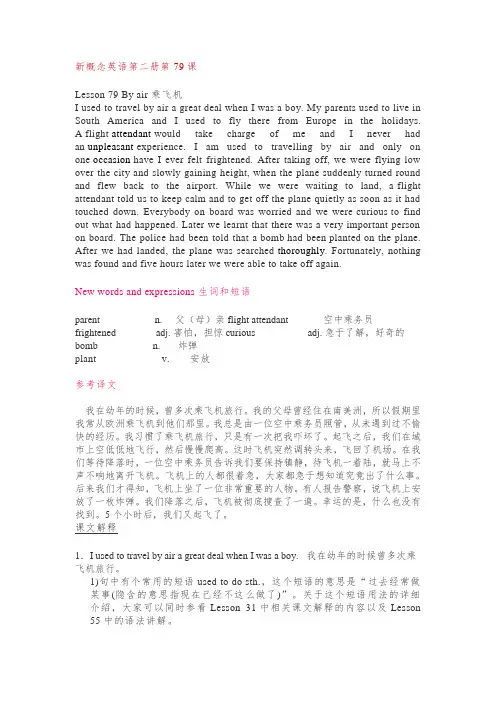
新概念英语第二册第79课Lesson 79 By air 乘飞机I used to travel by air a great deal when I was a boy. My parents used to live in South America and I used to fly there from Europe in the holidays.A flight attendant would take charge of me and I never had an unpleasant experience. I am used to travelling by air and only on one occasion have I ever felt frightened. After taking off, we were flying low over the city and slowly gaining height, when the plane suddenly turned round and flew back to the airport. While we were waiting to land, a flight attendant told us to keep calm and to get off the plane quietly as soon as it had touched down. Everybody on board was worried and we were curious to find out what had happened. Later we learnt that there was a very important person on board. The police had been told that a bomb had been planted on the plane. After we had landed, the plane was searched thoroughly. Fortunately, nothing was found and five hours later we were able to take off again.New words and expressions 生词和短语parent n. 父(母)亲flight attendant 空中乘务员frightened adj. 害怕,担惊curious adj. 急于了解,好奇的bomb n. 炸弹plant v. 安放参考译文我在幼年的时候,曾多次乘飞机旅行。
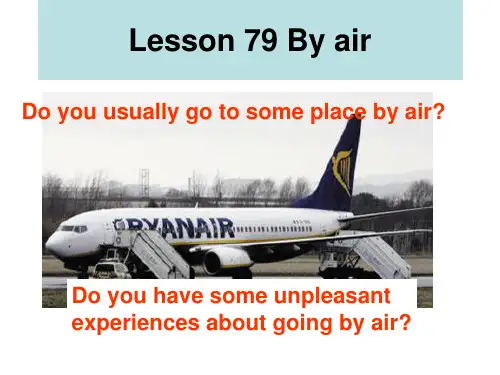
《新概念英语》第二册学习笔记80 79课第80课The Crystal Palace1、...Which was built in Hyde Park for the Great Exhibition of 1851.Hyde Park 伦敦著名的海德公园2、The Crystal Palace was different from all other buildings in the world, for it wasmade of iron and glass.be different from 与......不同例句:The meeting was different from any that had gone before.be made of 由......构成例句:The house were made of brick.3、A great many goods were sent to the exhibition from various parts of the world.a great many 很多,数目巨大例句:The information has proved useful to a great many people.4、a great deal of machinery on displaythe most wonderful piece of machinery on showon display, on show 意思都是‘展出的’5、Though in those days, travelling was not as easy as it is today, steam boatscarried thousand of visitors across the Channel from Europe.though 引导的状语从句though 虽然,表示转折的连词,汉语中'虽然'经常与'但是'连用,而英语中用了though,就不用but,用了but,就不用though此句也可以这样写:In those days, travelling was not as easy as it is today,but steam boats carried thousand of visitors across the Channel from Europe.6、On arriving in England, they were taken to the Crystal Palace by train.on arriving in England 现在分词短语,相当于一个时间状语从句,表示一......就......所以此句还可以改写成:Soon after they arrived in England, they were taken to the Crystal Palace by train.7、形容词的比较级和最高级,构成:(1) 单音节词和一部分的双音节词在词尾加er 和est.例词: long longer longestlate later latestbig bigger biggesthappy happier happiest(2) 多音节词和另外一部分双音节词在词前加more 和most.例词: difficult more difficult most difficultbeautiful more beautiful most beautifulinteresting more interesting most interestingactively more actively most activelyoften more often most often(3) 少数的形容词和副词的比较级和最高级比较特殊,需要单独记忆. 例词: good better bestbad worse worstmany more mostlittle less least比较级用于两者的比较,例句:Many is older than Jane.There are more parks in Beijing than in Shanghai.最高级用于三者以上的比较,例句:He is the tallest boy in his class.China has the largest population in the world.第79课By air1、I used to travel by air a great deal when I was a boy.use to do sth. 过去曾经怎么样,现在已经不这样了例句:The two children used to send me a card at Christmas time.by air 坐飞机例句:We went there by car/by bus/by train/by bicycle.2、A flight attendant would take charge of me......take charge of 负责某事,负责照顾某人例句:She intended to take charge of the boy herself.3、I'm used to travelling by air and only on one occasion have I ever felt frightened.be used to sth. 或be used to doing sth. 习惯于某事,习惯于某种现象例句:We are used to working together.have I ever felt 因为on one occasion 被提到了主语I 的前面,所以助动词have和主语I 要倒装,原来的语序是这样的:I have felt frightened only on one occasion.4、...we were flying low over the city and slowly gaining height...gaining height 高度增加,gain 后面还可以跟别的词,例句:The car gained speed as it rolled the hill.He had stopped smoking and had gained thirty pounds.5、Later we learnt that there was a very important person on board.learn 此句中的意思是‘了解到’例句:They offered help as soon as they learnt of the accident.6、本课出现了一些与坐飞机相关的词:by air 坐飞机flight attendant 空中乘务员take off 起飞gain height 上升land 降落get off the plane 下飞机touch down 着陆on board 在飞机上7、过去进行时,表示过去在某一时间段或某一段时间内正在发生或进行的动作。
新概念英语第79课课文
【原创实用版】
目录
1.新概念英语第 79 课的主要内容
2.课文的核心词汇与短语
3.课文的语法结构与要点
4.如何利用课文提高英语水平
正文
【新概念英语第 79 课的主要内容】
新概念英语第 79 课的课文以一位女士寻找丢失的猫为主线,通过描述女士与邻居之间的对话,展示了日常生活中常用的英语表达。
课文内容贴近生活,语言简练,有助于学习者熟悉和掌握日常用语。
【课文的核心词汇与短语】
1.核心词汇:
- lost(丢失的)
- cat(猫)
- neighbour(邻居)
- kind(善良的)
- police(警察)
- report(报告)
2.核心短语:
- have you seen...(你看见过……吗?)
- take care of(照顾)
- by the way(顺便说一下)
- in case(以防万一)
【课文的语法结构与要点】
1.语法结构:
- 一般过去时:描述过去发生的动作或存在的状态。
- 现在完成时:表示过去发生的动作对现在有影响或结果。
2.语法要点:
- 动词过去式的变化
- 现在完成时的构成
【如何利用课文提高英语水平】
1.熟读课文,理解课文内容,熟悉核心词汇和短语的用法。
2.练习对话,提高口语表达能力。
3.学习课文中的语法结构和要点,巩固英语基础。
4.多做练习,将所学知识运用到实际情景中。